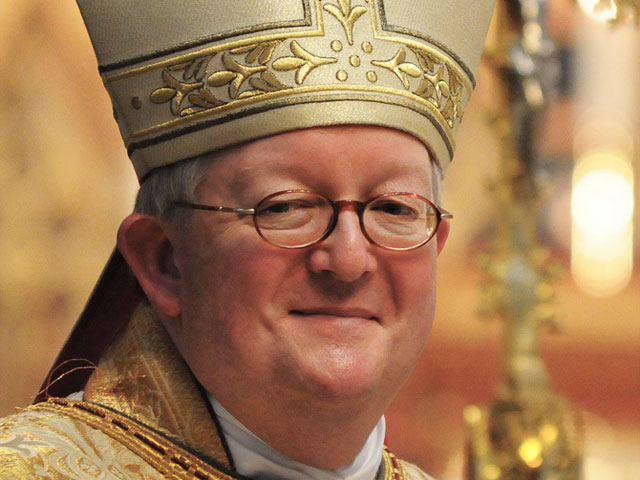One thing is certain, the facts boldly stated in the headline at The Telegraph are enough to grab readers from the get-go.
Gay marriage could signal return to ‘centuries of persecution’, say 1,000 Catholic priests
The story opens with an imposing block of paraphrased and quoted material from the letter, which was signed by some key bishops as well as priests.
The key, however, is the word “some.” More on that later.
More than 1,000 priests have signed a letter voicing alarm that same-sex marriage could threaten religious freedom in a way last seen during “centuries of persecution” of Roman Catholics in England.
In one of the biggest joint letters of its type ever written, they raise fears that their freedom to practise and speak about their faith will be “severely” limited and dismiss Government reassurances as “meaningless”. They even liken David Cameron’s moves to redefine marriage to those of Henry VIII, whose efforts to secure a divorce from Katherine of Aragon triggered centuries of bloody upheaval between church and state.
They claim that, taken in combination with equalities laws and other legal restraints, the Coalition’s plans will prevent Catholics and other Christians who work in schools, charities and other public bodies speaking freely about their beliefs on the meaning of marriage.
Even the freedom to speak from the pulpit could be under threat, they claim. And they fear that Christians who believe in the traditional meaning of marriage would effectively be excluded from some jobs — just as Catholics were barred from many professions from the Reformation until the 19th Century.
Now the key to this story is who signed this document and who did not.
Some of the important facts are clearly stated in the story. The letter — apparently sent to The Daily Telegraph, not to a government office of any kind was signed by 1,054 priests as well as 13 bishops, abbots and “other senior Catholic figures.” In all, these Catholic leaders are said to “account for almost a quarter of all Catholic priests in England and Wales.”
A quarter signed. There’s the key to the whole matter.
One quarter of the priests signed on, which means that 75 percent or so did not. The fact that 13 bishops signed on is impressive, but aren’t there 30-plus chairs for Catholic archbishops and bishops in the United Kingdom?
In other words, a crucial element of this story is the point of view of the Catholic leaders who either (a) opposed this letter or who (b) declined to sign it for other reasons. Where, in other words, are the voices on the Catholic left in this article? It’s understandable that they might choose to remain silent. But total silence from the majority of the bishops and priests, as well as their supporters in academia and the world of politics?
The story does a better job of explaining the parallels between the current legislation and the oppressive laws in England’s past.
Until 1829 Catholics and other religious dissenters in Britain and Ireland were barred from entering many professions or, in many cases, even meeting to worship under a body of restrictions collectively known as the penal laws.
The priests write: “After centuries of persecution, Catholics have, in recent times, been able to be members of the professions and participate fully in the life of this country. Legislation for same sex marriage, should it be enacted, will have many legal consequences, severely restricting the ability of Catholics to teach the truth about marriage in their schools, charitable institutions or places of worship. It is meaningless to argue that Catholics and others may still teach their beliefs about marriage in schools and other arenas if they are also expected to uphold the opposite view at the same time.” …
Rev Dr Andrew Pinsent, a leading Oxford University theologian, who also signed the letter, said: “We are very sensitive to this historically because of course the reformation started in England as a matter of marriage. Henry VIII could have been forgiven for his adultery but he didn’t want to do that, he wanted to control marriage and redefine what was a marriage and wasn’t.
“Because the Church would not concede that point, that launched three centuries of great upheaval in English society, and from the Catholic point of view life was very difficult. We fear that what is happening now is that a network of laws are being put in place which would violate our freedom of conscience.”
All well and good. But, speaking of Henry VIII, where are the Church of England voices — left and right — in this piece?
All in all, what readers end up with is a news story that presents the fears and arguments of one side, alone.
Meanwhile, it appears that the law would not ban all Catholics from holding these kinds of public positions. The issue is how it will affect Catholics who insist on believing in and defending the teachings of their church. It’s the pro-Vatican Catholics who could be in trouble.
In other words, the Tony Blairs of England are free to do that thing that they do. The question is: Where are their voices in this story? What are the counter arguments that would be made (a) by leaders of the Catholic left or (b) those who simply think that the Catholic traditionalists have been too bold?











